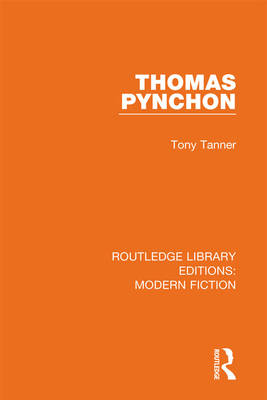
- Retrait gratuit dans votre magasin Club
- 7.000.000 titres dans notre catalogue
- Payer en toute sécurité
- Toujours un magasin près de chez vous
- Retrait gratuit dans votre magasin Club
- 7.000.0000 titres dans notre catalogue
- Payer en toute sécurité
- Toujours un magasin près de chez vous
Description
Thomas Pynchon is now recognized as a major contemporary novelist and perhaps the most important American writer since Melville. His work is both richly imaginative and amazingly erudite and can be compared, in its complexity, linguistic playfulness and experimentation and wealth of allusion, to the work of James Joyce. Aspects of history, psychology, technology and science, cultural and political movements, problems of identity and society and the status and function of fiction and narrative in the modern world are all dramatized with extraordinary wit and power.
Tony Tanner provides a brief, comprehensive introduction to his work. Against the background of Pynchon the man, this book, originally published in 1982, examines in detail his early short stories (some of which are not easily accessible) and offers a guide to the reading of his novels, V., The Crying of Lot 49 and Gravity's Rainbow. Many of Pynchon's recurrent themes, from entropy and information theory to his interest in the operations and divisions of power in the world since the Second World War, are considered. Finally, Tony Tanner places Pynchon and his work in a broader cultural and literary context.
Spécifications
Parties prenantes
- Auteur(s) :
- Editeur:
Contenu
- Nombre de pages :
- 94
- Langue:
- Anglais
- Collection :
- Tome:
- n° 23
Caractéristiques
- EAN:
- 9780367347949
- Date de parution :
- 18-10-19
- Format:
- Livre relié
- Format numérique:
- Genaaid
- Dimensions :
- 124 mm x 201 mm
- Poids :
- 204 g

Les avis
Nous publions uniquement les avis qui respectent les conditions requises. Consultez nos conditions pour les avis.






